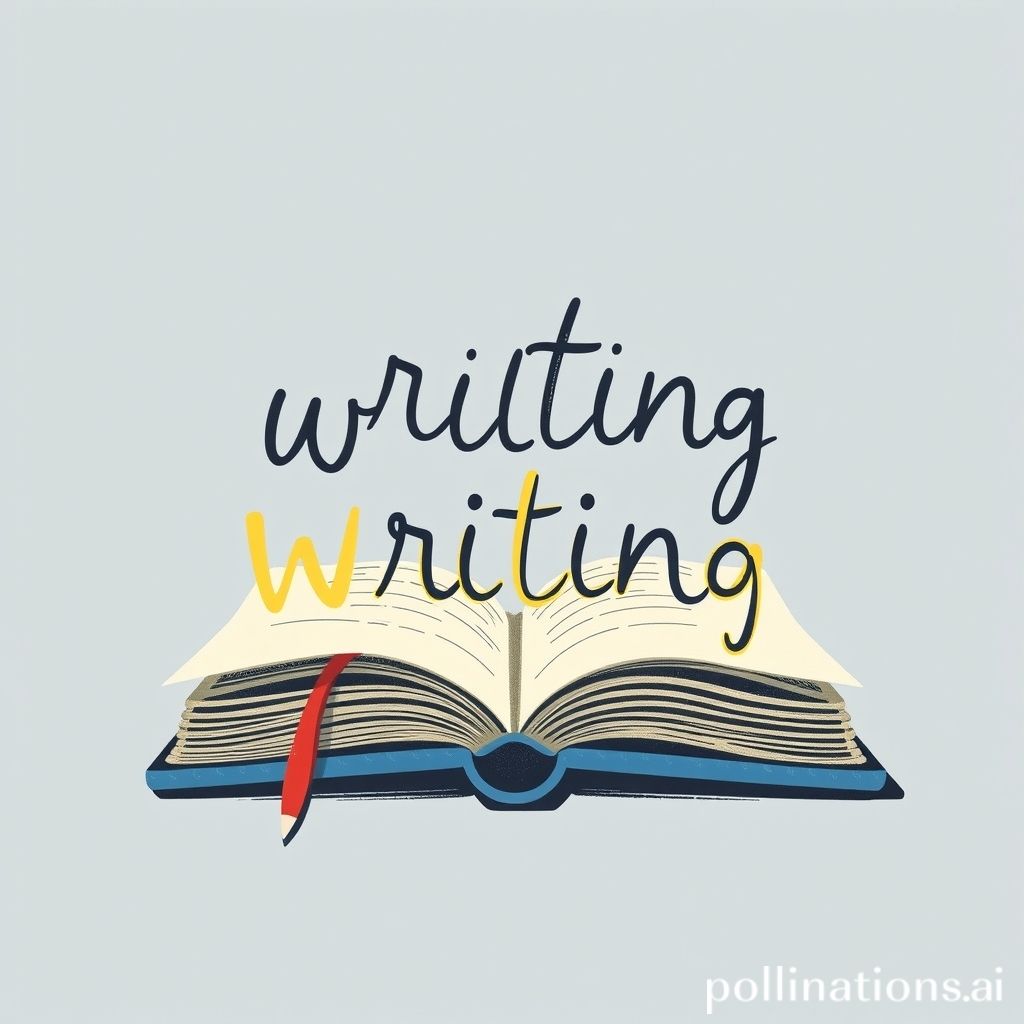Table of Contents
- Introduction
- Introduction to AI in creative writing
- The role of AI in content creation
- Benefits of using AI-powered tools for writing
- Limitations of AI in creative writing
- The future of AI in the writing industry
- Conclusion
- Frequently Asked Questions
Introduction
Are the days of humans wielding pens and crafting imaginative stories numbered? With the rise of Artificial Intelligence (AI), machines are gradually becoming capable of replicating creative tasks once performed exclusively by human beings. This has sparked a fascinating debate: Can machines truly replace creative writers?
Introduction to AI in creative writing
Imagine a world where robots are churning out best-selling novels and award-winning poetry, leaving us human writers in the dust. It might sound like something out of a science fiction novel, but the rise of Artificial Intelligence (AI) in creative writing is becoming increasingly real.
Now, here’s the kicker. AI has the potential to write prose that’s as smooth as silk, as captivating as a thrilling rollercoaster ride, and as beautiful as a sunset over the ocean. But can it capture the essence of what it truly means to be human? Can it stir emotions deep within our souls, make us ponder life’s mysteries, and connect us on a profound level?
As an avid writer myself, I’ve pondered these questions countless times, wondering if my artform could ever be mimicked by a machine. I’ve seen AI generate coherent stories, complete with characters, plots, and conflicts. But there’s something missing, something intangible that sets the work of a human writer apart.
In this article, we’ll dive into the fascinating world of AI in creative writing, exploring its potential and limitations. So buckle up and get ready for a mind-bending journey through the realm of AI-generated literature!
The role of AI in content creation
Well, folks, let’s dive into the intriguing topic of whether AI can replace us creative writers. Picture this: a world where machines churn out compelling stories, poems, and thought-provoking articles while we writers sit back with a cup of coffee, twiddling our thumbs. Sounds like something out of a science fiction novel, doesn’t it? But hold on just a second, because the reality may not be as dramatic as it seems.
Now, don’t get me wrong, AI has come a long way in recent years. Its ability to analyze vast amounts of data and generate coherent sentences is downright impressive. However, there’s more to crafting engaging content than simply stringing words together. It’s about breathing life into words, capturing the essence of human experiences, and connecting with readers on an emotional level, you know?
It’s like comparing a paint-by-numbers kit to a masterpiece painted by a talented artist. Sure, the kit can follow the instructions and replicate the image, but it lacks that soul-stirring touch that makes a piece of art truly remarkable.
So, while AI may assist us in drafting initial drafts or generating ideas, it’s unlikely to replace the creative genius that is the human mind. After all, it’s the imperfections, quirks, and idiosyncrasies of our writing that make it uniquely human and resonate with readers. And I don’t know about you, but I still believe in the power of human creativity.
Benefits of using AI-powered tools for writing
Well, folks, let me tell you a little story. Picture this: a writer, sitting at their desk, staring at a blank page, struggling to find the right words. The clock is ticking, and the deadline is looming. It’s a familiar scenario for many of us wordsmiths. But fear not, my friends, because AI-powered tools have sauntered onto the scene, promising to be our knights in shining armor.
Now, you might be thinking, ‘Can AI really replace our dear ol’ creative writers?’ And that’s a fair question, my friend. But let me paint you a picture. Imagine a tool that can effortlessly generate fresh ideas, shape our sentences with poetic precision, and even detect those pesky grammar gremlins that always seem to sneak into our work. Sounds too good to be true, doesn’t it? Well, sometimes truth is stranger than fiction.
These AI-powered tools, my friends, they’re like a trusty sidekick to our writing prowess. They can help us brainstorm, providing us with a muse in a digital form. They can suggest word choices, like a thesaurus on steroids, making our prose pop with pizzazz. And they can even analyze our writing style, offering suggestions to enhance our voice, our tone, our je ne sais quoi.
So, can AI replace us creative writers? That’s a tough question, my darlings. But, I dare say, these AI-powered tools have quickly become crucial companions in our writing journey. They’re like a secret weapon in our arsenal, boosting our creativity, saving us time, and dare I say, even sprinkling a little magic on our words. Now, that’s a game-changer, my friends.
Limitations of AI in creative writing
Well folks, let me tell ya, AI has come a long way, but when it comes to creative writing, there are some limitations that it just can’t seem to overcome. It’s like trying to teach a fish to ride a bike, ya know? It’s just not in their nature.
Now, don’t get me wrong, AI can generate text that follows all the grammatical rules, and it can even mimic certain writing styles. But what it lacks is that certain je ne sais quoi, that human touch that makes writing truly captivating and engaging.
You see, writing is an art, a form of expression that stems from our very souls. It’s not just about stringing words together, it’s about evoking emotions, painting vivid pictures in the reader’s mind, and making them feel something deep down in their guts.
AI just can’t grasp the subtleties, the nuances, and the emotions that come with being human. It can’t draw from personal experiences or share relatable anecdotes. It can’t make you laugh, cry, or ponder the mysteries of life.
So while AI may be great for some tasks, when it comes to creative writing, it’s like a fish out of water. It just can’t swim in the same literary ocean that us human writers do, ya dig?
The future of AI in the writing industry
Alright folks, let’s talk about the future of AI in the writing industry. Now, picture this: a world where robots become the new Hemingways and Shakespeares. Sounds crazy, right? But hey, stranger things have happened. We’ve seen technology evolve at an astonishing pace, and artificial intelligence is no exception.
Now, don’t get me wrong, AI has already made its mark on the writing scene. With algorithms that can generate articles or even compose music, it’s hard not to be impressed. It’s like having a fancy robot assistant who can whip up a poem faster than you can say ‘jackrabbit’. But can they truly replace the creative minds behind the words?
Picture this: you’re sitting in a cozy cafe, sipping on your cappuccino, watching fellow writers hunched over their laptops, lost in their own little worlds. There’s an undeniable charm to the art of writing, an essence that goes beyond mere words on a page. It’s about human connection, emotion, and the unique perspectives we bring to the table.
So, while AI may be able to mimic our style and syntax, can it truly replicate the fiery passion that fuels our creativity? Can it capture the raw emotions, the personal anecdotes, and the soul-stirring metaphors that make our writing come alive? Only time will tell, my friends.
Conclusion
The rise of Artificial Intelligence (AI) in creative writing is an undeniable reality. AI-powered tools have made significant progress in generating coherent text and assisting writers in various aspects of their work. While AI can provide valuable support, it is unlikely to completely replace human writers.
Writing is an art that goes beyond stringing words together. It requires the ability to evoke emotions, connect with readers on a deep level, and offer unique perspectives. AI struggles to capture the nuances, subtleties, and human experiences that make writing truly captivating.
However, this doesn’t mean that writers should shy away from utilizing AI-powered tools. Tools like WPHorde from WPHorde can be invaluable companions on the writing journey. These tools can assist with research, generate ideas, enhance writing style, and save time. They offer a way to streamline the writing process and gain new perspectives.
As the writing industry continues to evolve, embracing AI technology can be a game-changer. Writers who embrace and incorporate AI into their creative process are more likely to stay ahead of the curve and produce high-quality content. So, don’t get left behind. Embrace the power of AI tools like WPHorde and unlock your full writing potential.

